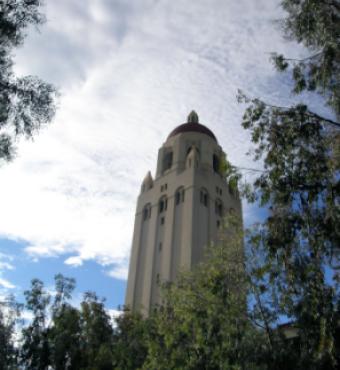
The New York Times blog “Room for Debate,” which solicits commentary from experts for a “running commentary on the news,” has tapped members of Hoover’s Koret Task Force on K–12 Education and Hoover’s Koret-Taube Task Force on National Security and Law to participate in recent forums.
Three of the six invited comments on the propriety of Justice Department lawyers having previously represented Al Qaeda detainees came from members of Hoover’s Task Force on National Security, and the lead commentary on “Does the size of a school matter” was presented by a member of Hoover’s Task Force on K-12 Education.
Hoover’s National Security and Law Task Force examines the rule of law, the laws of war, and American constitutional law with a view to making proposals that strike an optimal balance between individual freedom and the vigorous defense of the nation against terrorists both abroad and at home. The task force’s focus is the rule of law and its role in Western civilization, as well as the roles of international law and organizations, the laws of war, and U.S. criminal law.
The K–12 Education Task Force focuses on education policy as it relates to government provision and oversight versus private solutions (both within and outside the public school system) that stress choice, accountability, and transparency; that include systematic reform options such as vouchers, charter schools, and testing; and that weigh equity concerns against outcome objectives.
The following are recent blog postings by Hoover task force members.
Herb Walberg argues that smaller schools produce higher academic achievement than larger schools. Larger schools (particularly at the high school level) may offer a larger variety of classes, but they tend to be impersonal, departmentalized and bureaucratic.Complete commentary by Walberg.
Benjamin Wittes writes that it is deeply wrong to stigmatize those in the Justice Department who, earlier in their careers, have represented Guantánamo detainees. It is wrong to create the impression that a Justice Department with several lawyers who worked on behalf of detainees is one that lacks American values or will not use its legal authorities appropriately to defend the nation. Complete commentary by Wittes.
Matthew Waxman writes that efforts that are purportedly about transparency of government service and adherence to conflict-of-interest policies are, unfortunately, being used to paint detainee lawyers as disloyal to the country. Others in this debate will make arguments about principle—why legal representation even of the most odious terrorists is consistent with American values—and I agree with those arguments. I want, however, to address the national security dimension.Complete commentary by Waxman.
Kenneth Anderson writes that this is not a matter of lawyers’ protecting the guild. Conflicts of interest in particular cases (precluding work on those matters) must be avoided. But our liberal representative democracy has always depended on those knowledgeable in certain matters setting aside their personal views or prior representation to enter public service and to press possibly different views. Complete commentary by Anderson.
Click the following link to find out how you can support Hoover’s task forces and ideas defining a free society.





















